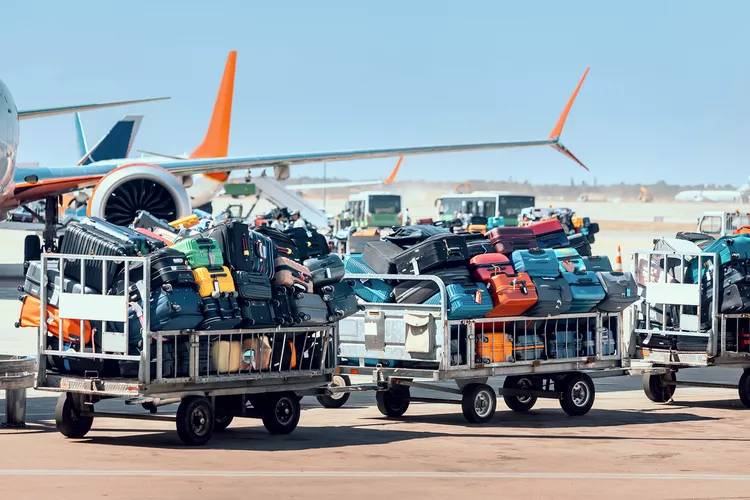Summary
What kind of damage is covered?
If you often check your bags, there’s a chance that you may face issues like bag damage, loss, or delays. Although most bags arrive safely, damage can occasionally occur.
Airlines are mandated to provide compensation for bags damaged during transit while they are in the airline’s control. You can either receive a repaired bag or compensation based on its depreciated value.
However, it’s important to note that there are limits to compensation and certain restrictions apply to what is covered.
According to the Department of Transportation, an airline can be liable for up to $3,800 per passenger for damaged baggage on domestic flights. For international flights, the limit is about $1,700, established by the Montreal Convention. While airlines have the option to exceed these limits, they are not obligated to do so.
Additionally, certain items are typically excluded from damage claims under domestic travel guidelines. These may include cash, fragile items, electronics, perishables, and valuables such as jewelry. However, for international travel, airlines are accountable for any item they accept for transport.
It’s essential to understand that normal wear and tear, preexisting damages, and damages due to improper packing are not covered.
:max_bytes(150000):strip_icc():format(webp)/TAL-baggage-load-cargo-airplane-DAMAGEDBAG0323-1a867d6d29b5431988515cfc30200e68.jpg)
How to Report Bag Damage
Reporting baggage damage varies by airline, with specific requirements that must be met to process a claim. Generally, airlines require you to report any luggage damage within 24 hours of landing for domestic flights and within seven days for international flights.
However, it’s wise to check for any unique conditions based on your airline. Here’s a brief overview of requirements from several major airlines:
- American Airlines stipulates that you must report damage within 24 hours of landing. You will receive a 13-digit file reference number for your claim.
- For Delta Air Lines, you need to have your bag inspected at the baggage office within 24 hours of arrival, after which you get a reference number for your claim.
- United Airlines allows damage reports either at the airport or via the Baggage Recovery Center within 24 hours of landing.
- With Alaska Airlines, damage must be reported at the airport, with confirmation provided via email.
- Southwest Airlines permits damage reports in-person or via phone, as long as it’s within four hours of your flight’s arrival.
Submitting a claim requires comprehensive information, including reference numbers, flight details, and photos of the damaged bag. It’s also helpful to include any pre-trip photos of your luggage for comparison. Depending on the airline, you may need additional documentation such as your luggage receipt and baggage claim tickets.
If the Transportation Security Administration (TSA) inspects your bags, you’ll find a notice inside the luggage. If there’s damage, you must directly contact the TSA by filing a claim online or calling 866-289-9673, as the airline isn’t liable for TSA-related damage.
:max_bytes(150000):strip_icc():format(webp)/TAL-airline-luggage-stacked-DAMAGEDBAG0323-2bd0fdbdeacd4403ab24f8036550df33.jpg)
Credit Cards That Come With Baggage Insurance
While airlines have liability for baggage damage, their compensation might not always suffice. Therefore, it’s advisable to consider having a credit card that includes baggage insurance, often part of a lost luggage policy.
Eligibility requirements may vary, typically requiring the flight to be booked with the card offering baggage insurance. Here are some of the premier credit cards offering baggage insurance:
- The Chase Sapphire Reserve and Chase Sapphire Preferred cards provide coverage for up to $3,000 per person for damaged or lost checked and carry-on luggage.
- Both the Platinum Card from American Express and Business Platinum Card cover checked-bag issues up to $2,000, with a total coverage limit of $3,000 for both checked and carry-on luggage.
- The American Express Gold Card and American Express Business Gold Card offer damage coverage of up to $1,250 for carry-on bags and $500 for checked bags.




